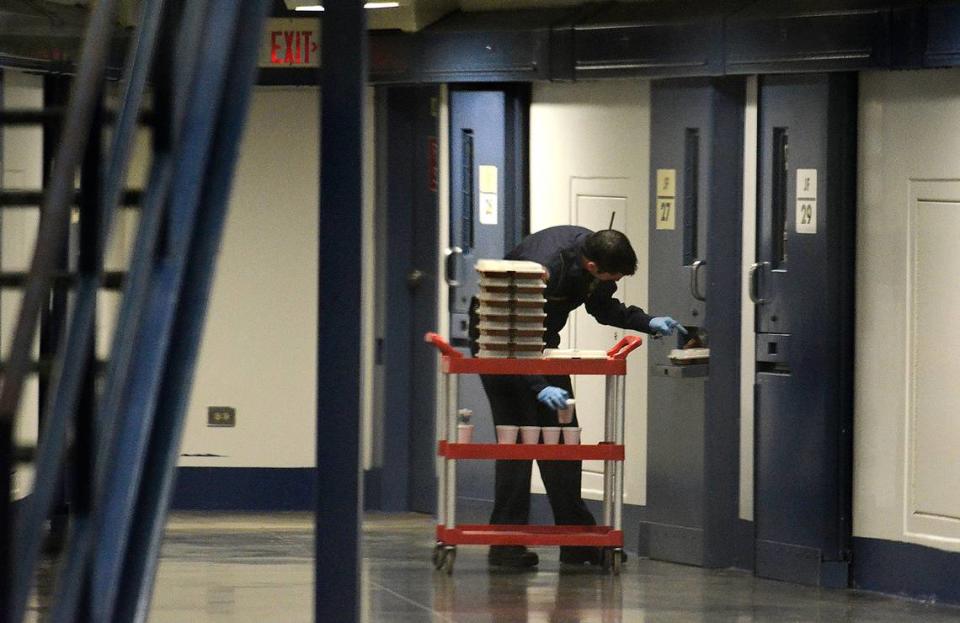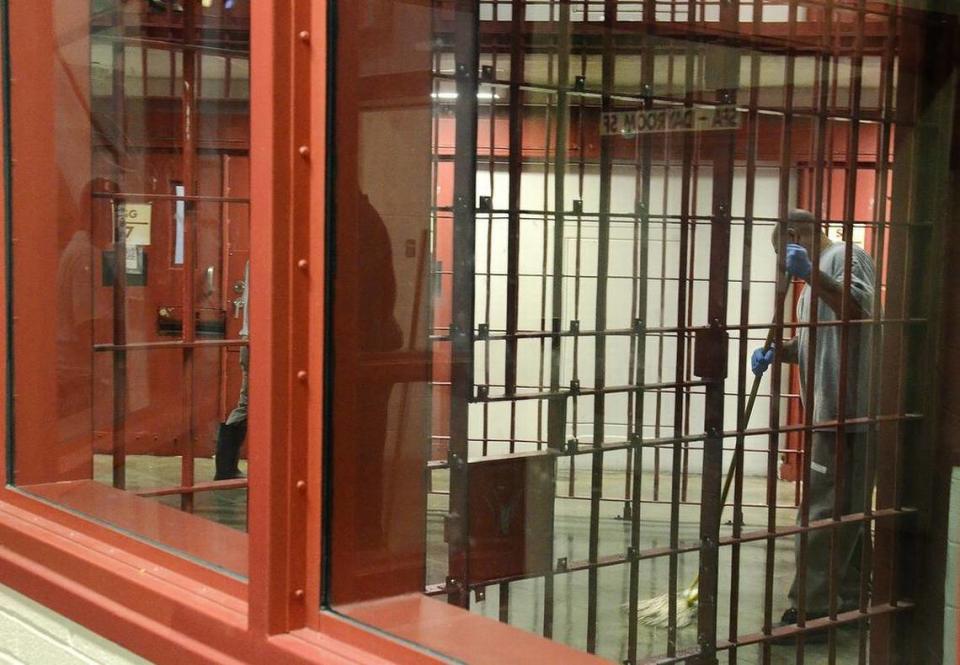What happens when NC inmates file grievances? Too often nothing at all, report says
North Carolina’s prison grievance system is supposed to give inmates a way to report problems that can affect their lives and health.
But a new report by an inmate advocacy group says the system is plagued by “major problems,” including conflicts of interest and officers who toss out grievances before they’re even investigated.
Under the federal Prison Litigation Reform Act of 1995, inmates must exhaust the facility’s internal grievance process before a civil suit can be considered.
“Thus, a flawed grievance process violates their basic human rights to access the courts,” the NC CURE report states.
In a letter to NC CURE, state Department of Adult Correction General Counsel Jodi Harrison said the department agrees it needs a “functional, robust and effective” grievance system.
“We believe that such a system is already in place and working as intended within the North Carolina prison system,” Harrison wrote.
There is “always room for continued improvement in practices,” she added, “and we are committed to our ongoing education and training efforts.”
The state’s 30,000 prison inmates file thousands of grievances each year, frequently alleging they are unable to get needed medical care, sufficient food or adequate time outdoors, among other things.
Their complaints are supposed to be investigated initially by staff members inside their own prisons. But that doesn’t always happen, several inmates told The Charlotte Observer.
Inmate Marlene Johnson said she filed a grievance over a life-and-death matter at Anson Correctional Institution, a women’s prison about 45 miles southeast of Charlotte. Officers refused to heed inmates’ requests for medical help when she suffered a heart attack in February 2022, she said.
Fortunately, a medical technician witnessed her distress and she was taken to a hospital in Union County, where she had heart surgery, Johnson said through an inmate messaging app.
“I would have died if those several inmates had not been persistent,” Johnson said.
Johnson, now 71, filed a grievance about the officers’ failure to help her, but it was rejected on a technicality, she said.
“Writing a grievance is a waste of the state’s paper,” Johnson wrote.
A state prison spokesman said the department is prohibited from discussing individual grievances.
‘Problems go on and on’
NC CURE’s leaders said they decided to study the prison grievance system after hearing persistent complaints.
The group collected more than 50 letters from inmates who described their experiences with grievances and shared them with Heidi Bonner and Michelle Malkin, two criminal justice professors at Eastern Carolina University.
The professors concluded that inmates “lacked confidence in the grievance process, feared retaliation for following it, and experienced a ‘lack of procedural justice,’” according to the report.

Standards set by the American Bar Association call for effective practices to investigate and resolve complaints by inmates. NC CURE said its review suggests the state falls short of meeting those standards.
“Without people recognizing there are problems, these problems go on and on,” said Sandra Hardee, a retired clinical pharmacist who now serves as executive director of NC CURE.
Former inmate Elizabeth White told the Observer she filed about 100 grievances during her 25 years in the North Carolina prisons. She was satisfied with a resolution in only one case, which involved money that she hadn’t been paid on a prison job.
Her complaints covered a range of problems, from what she called “bullying” by staff members to a lack of hot water in her dorm. Prison staff members dismissed many of her grievances without any indication that they’d thoroughly investigated them, she said.
“They will take the officer’s side first,” said White, who was released from prison in 2022. “They’re going to take their word over yours. So what’s the use?”
‘Fox guarding the henhouse’
The report points to what it called an inherent conflict of interest: Complaints against staff members are investigated initially by their peers at the same prison.
“Indeed, many of the letters received by NC-CURE allege that those investigating were in part responsible for the grievance submitted,” the report states.
When grievances are appealed, they go to a state agency called the Inmate Grievance Review Board, which is funded by the same department that runs the prisons.
“These are clear examples of the fox guarding the henhouse,” the report states.
Harrison, the general counsel for state prisons, countered that grievance review board members are appointed by the governor and that the agency provides a “wholly external avenue” for inmates to appeal grievance decisions.
But a former program supervisor for the state prisons, who asked not to be named because she fears retaliation, told The Charlotte Observer that she felt the system favored staff members, and that few inmates who filed grievances got a fair shake.
Often, she said, the people who investigated grievances were close to the staff members who were the subjects of those complaints. Grievances ought to be investigated by people who don’t work at the prison where the inmate lives, she said.
“It needs to be redesigned for fairness,” the former program supervisor said.
‘Treat them as human beings’
Some inmates complain that their grievances were simply thrown out without being investigated at all, according to the NC CURE report.
Kim Ingram, a former inmate released from state prison in 2020, said she has seen that happen. “They’ll say, ‘We never received your grievance,’ ” she said.
She estimated that she filed about 25 grievances during her five years at the North Carolina Correctional Institution for Women in Raleigh. She said she suffered from severe choking attacks for two years before prison officials sent her to doctors who correctly diagnosed what was wrong: She suffered from sarcoidosis, a serious lung disease.
Ultimately, some of her grievances did get the attention of prison staff, she said, but it took too long. “This (medical problem) could have been prevented,” said Ingram, who now lives in Charlotte.

To address shortcomings, NC CURE recommended that a task force be appointed to review and revise the grievance procedures.
Harrison said the staff of the grievance review board has audited the grievance practices at all prisons. In cases where deficiencies were found, she said, follow-up training was provided and corrective actions were taken.
Hardee acknowledges that some inmates file frivolous complaints – and that when people commit serious crimes, they should be separated from society.
“That should be their punishment,” she said. “But while they are behind prison walls, we as citizens have a responsibility to treat them as human beings.”
Celeste Lindley, a board member for NC CURE and the report’s main author, said that’s not the only reason people on the outside should care about the prison grievance system.
“When people aren’t treated fairly, and not treated with respect, that sets up a behavior,” said Lindley, a retired professor at the UNC School of Pharmacy. “It makes those people more prone to re-criminalization. It makes people in the community less safe.”

